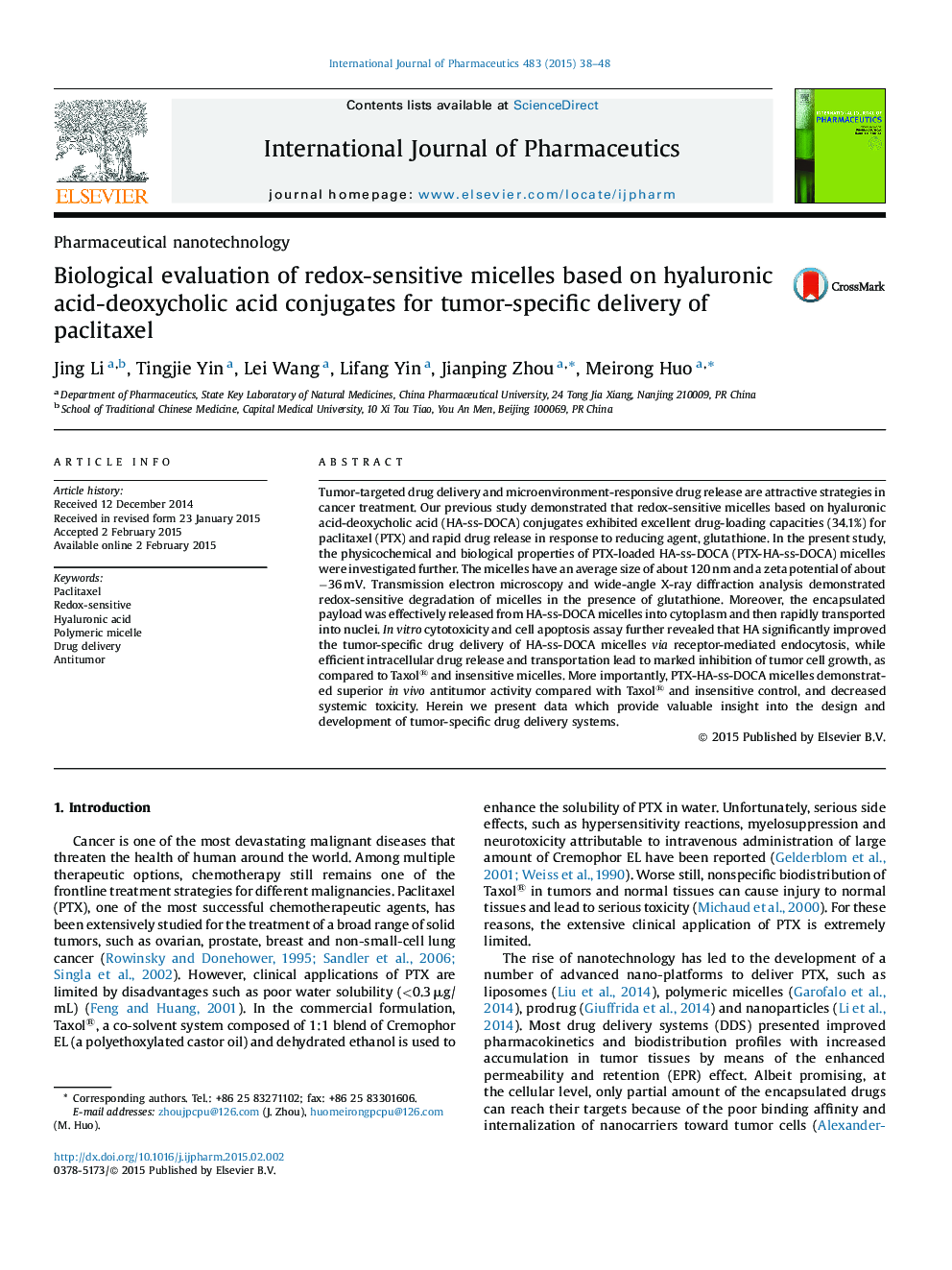| Article ID | Journal | Published Year | Pages | File Type |
|---|---|---|---|---|
| 2501495 | International Journal of Pharmaceutics | 2015 | 11 Pages |
Tumor-targeted drug delivery and microenvironment-responsive drug release are attractive strategies in cancer treatment. Our previous study demonstrated that redox-sensitive micelles based on hyaluronic acid-deoxycholic acid (HA-ss-DOCA) conjugates exhibited excellent drug-loading capacities (34.1%) for paclitaxel (PTX) and rapid drug release in response to reducing agent, glutathione. In the present study, the physicochemical and biological properties of PTX-loaded HA-ss-DOCA (PTX-HA-ss-DOCA) micelles were investigated further. The micelles have an average size of about 120 nm and a zeta potential of about −36 mV. Transmission electron microscopy and wide-angle X-ray diffraction analysis demonstrated redox-sensitive degradation of micelles in the presence of glutathione. Moreover, the encapsulated payload was effectively released from HA-ss-DOCA micelles into cytoplasm and then rapidly transported into nuclei. In vitro cytotoxicity and cell apoptosis assay further revealed that HA significantly improved the tumor-specific drug delivery of HA-ss-DOCA micelles via receptor-mediated endocytosis, while efficient intracellular drug release and transportation lead to marked inhibition of tumor cell growth, as compared to Taxol® and insensitive micelles. More importantly, PTX-HA-ss-DOCA micelles demonstrated superior in vivo antitumor activity compared with Taxol® and insensitive control, and decreased systemic toxicity. Herein we present data which provide valuable insight into the design and development of tumor-specific drug delivery systems.
Graphical abstractFigure optionsDownload full-size imageDownload high-quality image (245 K)Download as PowerPoint slide
